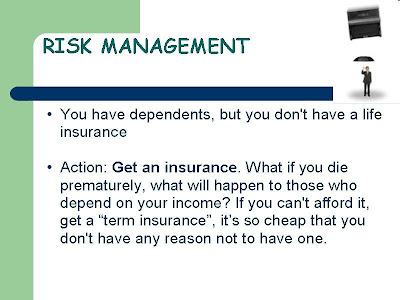
"Placing more importance on money doesn't mean there is no true love. Love is a feeling. It needs material support to become real, solid and lasting."
Greener?...
Nah, I'm not talking about ecology, environment, global warming or carbon footprints
Greener?...
Nah.. not the dirty green thing, tsk tsk dirty mind hehe *grin*, I'm a financial guy, not a porn writer =p
Greener..
Yes, green bucks!.. We're talking about money again, its what the site is all about.
It's known that Chinese are quiet shrewd in terms of money and finances. It is also known that interracial marriages are still taboo in this generation. But rarely discussed is how and what really constitute a Chinese romance. This topic is sensitive in nature, but I somewhat feel that I need to as a financial planner because its part of the financial reality.
What's Behind The Chinese Romance?....
Ligaw-Intsik (sa araw kung manligaw at may dalang weird na regalo)??.. well, there's some truth to it, the reason is that Chinese are protective over the their children, so its common that Chinese youths particularly girls have some form of curfew. But the weird gift thing, I would like to argue about that, I would say its exaggerated.
Chinese marry Chinese.. well, yes, there's a sociological, cultural and most of all, financial basis for that. I would forego the sociological and cultural topic coz that's not my expertise. However, in basis of financial, I would say its more like two companies talking about merger (remember the Equitable Bank and Banco de Oro?), both parties/companies want the merger to be the best for them financially and culturally.
But how do Chinese choose their partner?.. its hard to pinpoint what are the specific factors affect their decision. But I can assure you that financial is most likely a big part of it. Here are some surveys or studies I gathered:
- A poll conducted online by the China Youth Daily and qq.com, an online community visited mostly by young people, showed that nearly half the 8,932 respondents said "that money and other financial packages are the most important preconditions for love".
- Of those surveyed, "85.5 percent of younger generation paid more attention to financial status when considering potential life partners than previous generations".
- It was also reported that around 30% of girls in Beijing would prefer to marry a man who owned a house
- A survey conducted on female college students' attitude towards work and marriage. Among the 7,311 female college students interviewed, 72.2% of the respondents agree with the saying that it is better to marry a rich husband than have a good career.
The reality is kinda like "no financial statement, no date", you have to prove your worth both in personality and financially. Parents of girls often sets a standard to how rich or wealthy the male suitor should be. And because of the patriarchal social setup, girls more often give way to the system.
It doesn't mean that looks, honesty and kindness are not part of the equation anymore, but as the world gets competitive and life's getting harder. More and more weight are being put into security. Education, career and financial independence of girls are also part of the equation. Girls want someone who is ahead of them and can provide the best for them. Simple, practical and most of all, realistic.
Face it guys (particularly Chinese guys), if you don't know that your financial status would affect your romantic life greatly, then you should reassess the reality.
Please Read!
"Singaporean Girls - A Challenge To Love"
http://www.singapore-window.org/sw05/050213st.htm

















